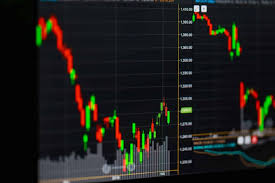
Essential Forex Trading Techniques for Success in the Market
Forex trading can seem daunting at first, but with the right techniques, it becomes a more manageable and potentially lucrative endeavor. Many traders often struggle with the complexities of the forex market. Understanding various trading techniques can significantly enhance your ability to make informed decisions. If you’re navigating this world, consider working with top brokers to maximize your trading potential. For instance, check out the forex trading techniques Best Ivorian Brokers that can offer valuable insights and support.
1. Technical Analysis
Technical analysis is the cornerstone of forex trading for many successful traders. This technique involves analyzing price movements and trading volumes through charts and technical indicators. Traders who utilize technical analysis often rely on patterns and historical price data to make predictions about future price movements. Key tools used in technical analysis include:
- Moving Averages: These indicators help smooth out price data and identify trends by filtering out noise from random price fluctuations.
- Relative Strength Index (RSI): An oscillator that measures the speed and change of price movements, helping traders identify overbought or oversold conditions.
- Support and Resistance Levels: These are critical areas on the chart where the price has historically struggled to move above (resistance) or below (support).
By employing these tools, traders can make more informed decisions based on market behavior rather than solely relying on instinct or emotion.
2. Fundamental Analysis
While technical analysis focuses on price trends, fundamental analysis looks at the economic factors that influence currency movements. It involves studying economic indicators, political events, and overall market conditions. Key elements that traders often evaluate include:

- Interest Rates: Central banks set interest rates that can have significant effects on currencies. Higher interest rates typically attract foreign capital and can lead to currency appreciation.
- Economic Indicators: Reports such as GDP growth, employment statistics, inflation, and consumer confidence can provide insights into a country’s economic health and its currency’s potential performance.
- Political Stability: Political events like elections, policy changes, or geopolitical tensions can lead to significant volatility in currency values.
Successful traders often combine both technical and fundamental analyses to enhance their trading strategies and outcomes.
3. Risk Management
One of the most critical aspects of trading is risk management. Effective risk management techniques help traders protect their capital while maximizing their profit potential. Some basic strategies include:
- Setting Stop-Loss Orders: A stop-loss order automatically closes a position at a predetermined price to limit losses, allowing traders to manage their risk more effectively.
- Position Sizing: Determining the size of your trades based on account size and risk tolerance is crucial. Many traders use a rule that limits risk to 1-2% of their total account balance on a single trade.
- Diversification: Spreading investments across various currency pairs can mitigate risk and reduce the impact of poor-performing trades.
By implementing these risk management strategies, traders can protect their investments and ensure they remain in the market longer, allowing them to capitalize on potential opportunities.
4. Trading Psychology
Understanding trading psychology is vital for success in forex trading. Emotional factors can significantly impact trading decisions, often leading to mistakes. Here are some psychological aspects to consider:

- Discipline: Successful traders adhere to their trading plan and strategies, avoiding impulsive decisions driven by fear or greed.
- Patience: Waiting for the right setup and not forcing trades is crucial. Rushing into positions can lead to losses.
- Emotional Control: Keeping emotions in check, especially during significant market movements, can help traders stick to their systems and avoid panic selling or over-trading.
Developing a strong trading mindset can significantly improve a trader’s performance over time.
5. Continuous Learning
The forex market is continually evolving, making ongoing education vital for traders. Whether you’re a beginner or have years of experience, staying updated with market trends, new strategies, and tools is essential. Here are some ways to continue learning:
- Webinars and Online Courses: Many brokers and trading platforms offer educational resources, including webinars that cover various aspects of forex trading.
- Trading Communities: Joining trading forums and communities can provide valuable insights and experiences from fellow traders.
- Books and Articles: Reading educational material written by experienced traders can help refine your strategies and deepen your understanding.
By committing to continual improvement and seeking knowledge, traders can adapt to changing market conditions and refine their techniques.
Conclusion
Forex trading is not just about buying and selling currencies; it involves a combination of sound techniques and an understanding of market dynamics. By employing effective strategies such as technical and fundamental analysis, prioritizing risk management, mastering trading psychology, and committing to continuous learning, traders can enhance their potential for success in the forex market. As you embark on your trading journey, remember that consistency and discipline often separate successful traders from those who struggle. Always be prepared to adapt, learn, and grow in this dynamic environment.


















